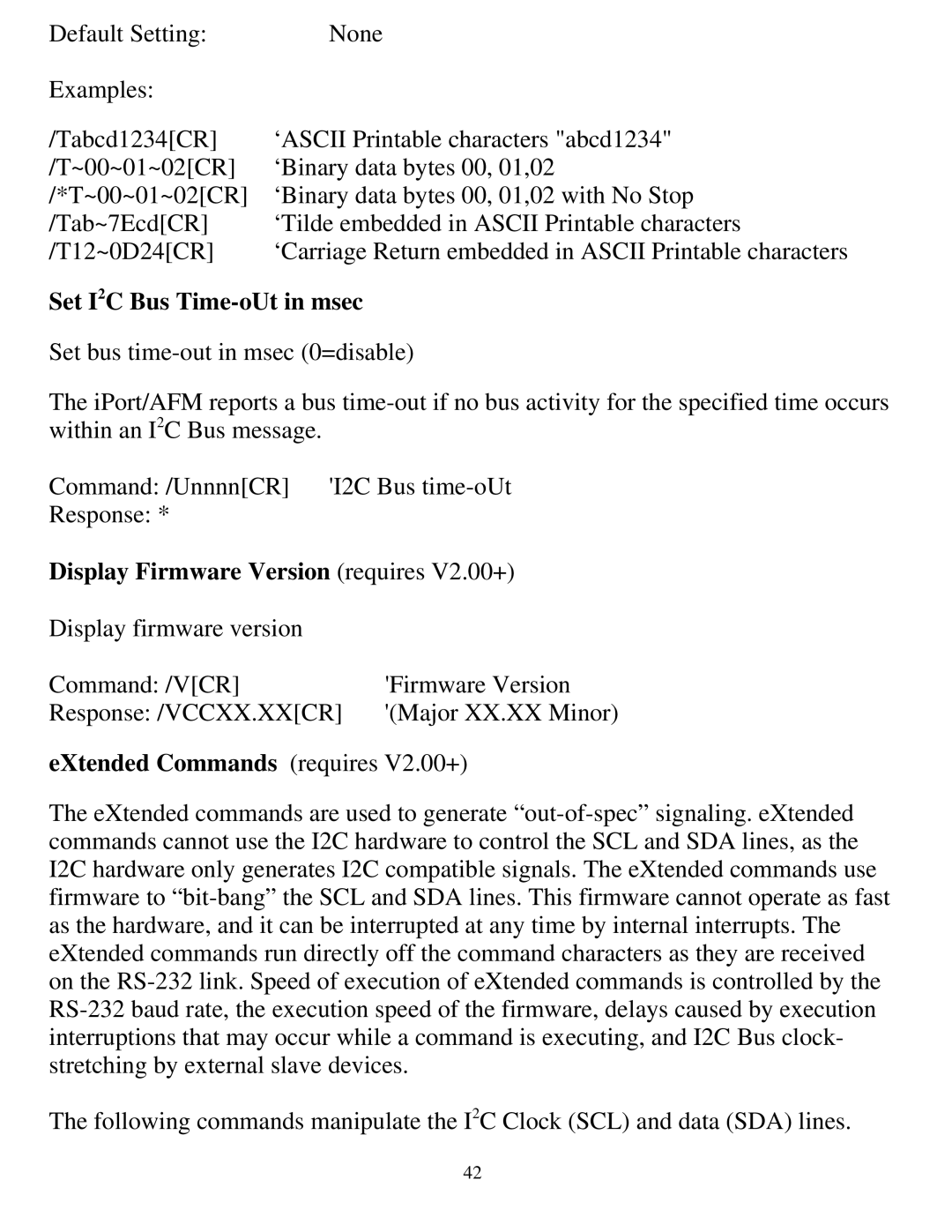Default Setting: | None |
Examples: | |
/Tabcd1234[CR] | ‘ASCII Printable characters "abcd1234" |
/T~00~01~02[CR] | ‘Binary data bytes 00, 01,02 |
/*T~00~01~02[CR] | ‘Binary data bytes 00, 01,02 with No Stop |
/Tab~7Ecd[CR] | ‘Tilde embedded in ASCII Printable characters |
/T12~0D24[CR] | ‘Carriage Return embedded in ASCII Printable characters |
Set I2C Bus Time-oUt in msec
Set bus time-out in msec (0=disable)
The iPort/AFM reports a bus time-out if no bus activity for the specified time occurs within an I2C Bus message.
Command: /Unnnn[CR] 'I2C Bus time-oUt
Response: *
Display Firmware Version (requires V2.00+)
Display firmware version | |
Command: /V[CR] | 'Firmware Version |
Response: /VCCXX.XX[CR] | '(Major XX.XX Minor) |
eXtended Commands (requires V2.00+)
The eXtended commands are used to generate “out-of-spec” signaling. eXtended commands cannot use the I2C hardware to control the SCL and SDA lines, as the I2C hardware only generates I2C compatible signals. The eXtended commands use firmware to “bit-bang” the SCL and SDA lines. This firmware cannot operate as fast as the hardware, and it can be interrupted at any time by internal interrupts. The eXtended commands run directly off the command characters as they are received on the RS-232 link. Speed of execution of eXtended commands is controlled by the RS-232 baud rate, the execution speed of the firmware, delays caused by execution interruptions that may occur while a command is executing, and I2C Bus clock- stretching by external slave devices.
The following commands manipulate the I2C Clock (SCL) and data (SDA) lines.
